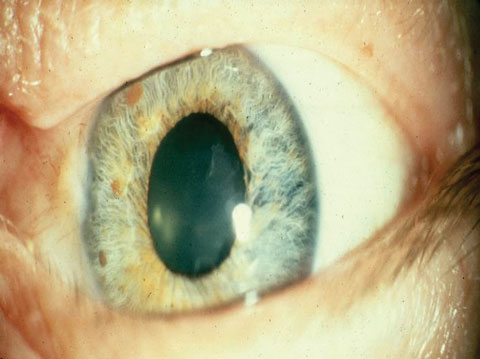No room at mental health facilities | News
[ad_1]
Gov. JB Pritzker overstepped his authority by giving one of his cabinet members “sole and unfettered discretion” over which criminal defendants should be admitted for psychiatric treatment to restore their fitness for trial, the Sangamon County sheriff says.
Sheriff Jack Campbell made that assertion in a June 22 lawsuit requesting damages against the Illinois Department of Human Services, including the costs of housing inmates at the Sangamon County Jail beyond the 20-day statutory requirement for admission to DHS facilities after judges have ruled inmates unfit.
State’s Attorney Dan Wright, representing Campbell, said in court documents that the constitutional “due-process” rights of defendants are being violated by a Pritzker executive order – issued in spring 2020 as the COVID-19 pandemic hit Illinois – that suspended the 20-day grace period and halted all admissions from county jails to DHS facilities except those granted by DHS Secretary Grace Hou. The order has been renewed and remains in effect.
On a related front, Circuit Judge Adam Giganti on June 29 ruled that the state was in civil contempt of court for failing to transfer Sangamon County Jail inmate Alfred Berry to a DHS facility for psychiatric treatment after Berry was declared unfit April 7. Berry finally was admitted to one of those facilities, Springfield’s McFarland Mental Health Center, on June 30.
Giganti wrote in his ruling that he found “no merit” in legal arguments presented by DHS in the Berry case.
The judge said Pritzker’s executive order granting Hou unfettered discretion on when to allow admissions of county jail inmates to DHS facilities violates the Illinois Emergency Management Act and cannot be enforced, based on a November 2020 ruling by the 4th District Appellate Court involving transfers of county jail inmates to state prisons.
Giganti’s ruling apparently marks the first time the state has been held in contempt for tardy DHS admissions since the COVID-19 pandemic began. Giganti ordered the state to pay a $100-per-day fine until Berry is admitted to DHS.
Though largely symbolic, the contempt finding could ramp up pressure on state officials to act on the overall issue of delayed admissions to DHS facilities.
Berry, 33, a Springfield resident, is charged with car theft, violating an order of protection and criminal trespass to a residence.
What DHS is calling an “unpreceded backlog” of admissions to the department’s seven psychiatric hospitals is affecting county jails throughout the state. Defendants in jail often wait months to be transported for treatment to restore fitness, which can take months or longer.
DHS officials have said about 150 people are sitting in Illinois county jails after being declared temporarily unfit for trial and waiting for a DHS bed.
But state officials say admissions haven’t stopped. They say the department has admitted more than 1,200 “forensic” patients for treatment since Pritzker’s executive order took effect in April 2020.
Officials from DHS and the Illinois Attorney General’s office have defended the executive order and the state’s efforts to deal with the pandemic while working on long-term solutions to increase bed capacity in the DHS system for jail inmates.
“We can’t kick someone out of a bed just because the Sangamon County Sheriff’s Office says someone needs to go now,” Assistant Attorney General Maria Gray said in a June 27 Sangamon County court hearing.
Campbell’s lawsuit represents an escalation of public pressure on the governor and other state officials to come up with ways to deal with chronic capacity constraints in state psychiatric hospitals – a problem that only got worse because of staffing shortages and concerns about virus transmission during the pandemic.
“The Sangamon County Jail has been required to incur substantial overtime costs, implement special housing accommodations, provide more frequent supervision, and transport ‘unfit’ detainees to periodic hospital visits arising from incidents of self-harm or other related injury,” Campbell’s lawsuit against Pritzker and Hou says.
“The defendants’ acts and omissions have caused too many individuals to languish and decompensate into more severe manifestations of mental illness while DHS continues to violate … placement and psychiatric treatment orders by judges across Illinois,” the lawsuit says.
Associate Judge Karen Tharp is scheduled to hear arguments July 7 on a proposed temporary restraining order to stop what Campbell and Wright describe as violations of state and federal law that put defendants and jail staff at increased risk of harm.
Berry’s case was among four separate cases involving Sangamon County defendants waiting for transfer to DHS since early April.
Wright said his previous efforts to have the state declared in contempt for violating the maximum 20-day grace period resulted in three of the four men being admitted to DHS.
State officials said Wright’s court filings, which also were supported by the Sangamon County public defender’s office, had nothing to do with the recent admissions.
Wright asked Giganti for the contempt ruling at the June 27 hearing in the Berry case after Giganti ordered DHS Secretary Hou to appear in court to defend the department’s actions.
Wright pointed out to the judge that Hou didn’t show up to court, though Gray said it was her fault Hou wasn’t there.
Gray said there’s no evidence that the state is “willfully disregarding” court orders to admit for treatment defendants ruled unfit. She noted that the state eventually admitted 10 of 11 defendants from Sangamon County on a waiting list dating from earlier in the year.
Sangamon County officials said it cost the county more than $35,000 to house those 11 defendants after the 20-day grace period.
Wright filed complaints June 28 that could lead to contempt findings against the state in the cases of five more jail inmates declared unfit for trial and waiting for transfer to DHS longer than the 20-day grace period.
The inmates include Christopher N. Hall, 38, a Wisconsin resident charged with first-degree murder in the October 2021 shooting death of Hason Willis, 43, of Springfield.
Wright argued in court June 27 that there’s no evidence DHS has taken “meaningful steps” to reduce the backlog despite having ample resources to do so.
Gray said evidence is “clear that we have admitted individuals as it is possible for us to do so. … There are not unlimited resources.”
But Assistant Public Defender Michael Sullivan said: “DHS has a job to do. They didn’t do it.”
Gray said in court documents that DHS’ “contingency plans during this unprecedented pandemic and under the relevant executive orders are intended to protect all current and potential patients, including (Berry), as well as the staff members that operate these facilities, visitors, jail staff and detainees and the general public.”
Gray said at a June 15 hearing on the Berry case that DHS can’t admit new patients from county jails when there are no beds available.
Wright told Illinois Times after the hearing that he wasn’t moved by Gray’s argument.
“In the most respectful way I can say it, that is the responsibility of the state of Illinois,” he said. “It is not the responsibility of county jails across the state, and that burden should not be borne by the inmates who are mentally ill and have been found unfit. … This has been a years’-long issue, exacerbated by the pandemic.
“There has been no shortage of notice and good-faith discussion to give the state time to come up with a different plan, develop alternative facilities, come up with strategies to get more staff, and we’ve just exercised every possible alternative but to seek judicial intervention to preserve the constitutional rights of these inmates.”
Dean Olsen is a senior staff writer with Illinois Times. He can be reached at [email protected], 217-679-7810 or twitter.com/DeanOlsenIT.
[ad_2]
Source link







